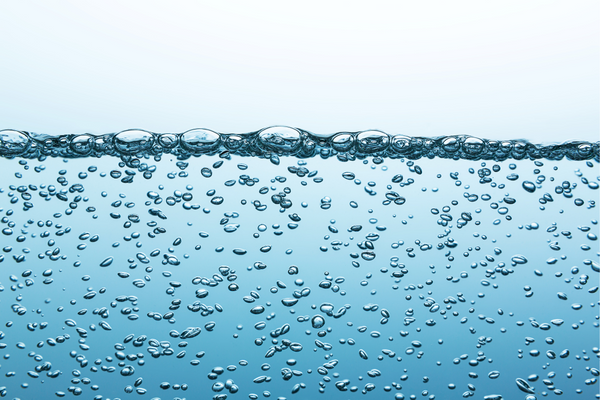
Do you ever find yourself running out of hot water? If so, you're not alone. Many people experience this problem every day. Hot water heaters are notorious for wearing down and quitting on people, leaving them with cold showers and a lot of frustration. In this blog post, Oak Plumbing will discuss the reasons why you might be running out of hot water and ways that you can conserve it so that you don't have to go through this frustrating experience anymore!

So, why do I keep running out of hot water?
There are several reasons why your water heater is not giving you enough hot water. It might be too small, your settings might be off, or there may be something more severe going on. A buildup of sediment, a broken dip tube or heating element, and leaks can all cause your hot water to go away. If you're wondering why you don't have enough hot water, consider the problem descriptions below to find a potential match. After narrowing down the cause of your lack of hot water, try calling Oak Plumbing!
Your water keeps alternating between hot and cold
If your water heater is cycling on and off too frequently, it might be due to a faulty thermostat. The thermostat is what tells the heating element when to turn on and off to maintain water temperature. If the thermostat isn't working properly, your water heater will overheat the water, causing it to cycle off too frequently. This issue can be fixed by replacing the thermostat.
Another possibility is that there is a buildup of sediment in your water heater's tank. Old pipes, hard water, and worn-out anode rods can all cause sediment accumulation in your water heater. When this happens, the sediment absorbs much of the heat instead of the water, leading to unevenly-warmed water. If you suspect that sediment buildup in your water heater is the culprit, try flushing and draining your tank. If that doesn't work, you will need to replace your water heater.

Your water heater is leaking
If your water heater is leaking, it's definitely time to call a professional. A leaky water heater can cause all sorts of problems, including flooding and electrical issues. Not to mention, it'll also make it impossible for you to have hot water.
You run out of hot water very quickly
If you find that you're running out of hot water very quickly, it could be due to a number of different issues. It could be that your water heater is too small for your household, meaning it can't keep up with demand. Or, there could be a problem with the dip tube, which is the part of the water heater that supplies cold water to the heating element. A broken dip tube can cause hot water to mix with cold water, which will result in lukewarm water very quickly. There could also be a problem with the thermostat, which could be causing your water heater to overheat the water.
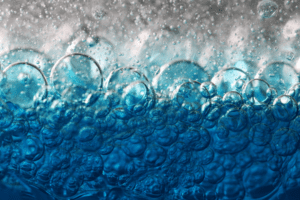
Your water never heats up beyond tepid
If your water never heats up beyond a lukewarm temperature, it could also be a sign that your anode rod is depleted. The anode rod is what protects the water heater from corrosion, and when it's depleted, it can cause the water to become tepid. If you're constantly running out of hot water, it's best to call a plumber to take a look at your water heater. There could be a simple fix, or it could be time to replace your water heater altogether.
You're running out of hot water before everyone is finished using it
If you're running out of hot water before everyone in your household is finished using it, there are a few things that could be causing the problem. First, take a look at the size of your water heater. If it's too small for your household, then it's likely that you'll run out of hot water quickly. Another possibility is that there could be a problem with the heating element in your water heater. If it's not working properly, then it won't heat the water as well as it should.

You aren't getting any hot water at all
If you're not getting any hot water at all, then the first thing you should do is check the breaker. If the breaker has tripped, then you'll need to reset it. If that doesn't solve the problem, then there could be a problem with the gas or electricity supply to your water heater.
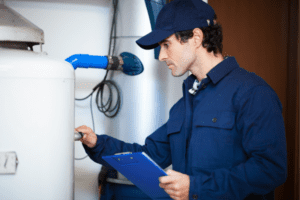
How do I conserve the hot water?
Use less water
Without a doubt, some homes use more water than others. Fortunately, there are many ways you can reduce your overall water consumption. For example, run your dishwasher less often or do larger loads of laundry less frequently. Even making small changes like this can have a big impact on preserving hot water in your home. Another great tip is to install low-flow aerators on all of your faucets!
Take shorter showers
Conserve water by taking shorter showers. Place a waterproof timer in your shower and make sure everyone in your household knows to stay under five minutes. You can also reduce the amount of water used during showers by installing low-flow showerheads.
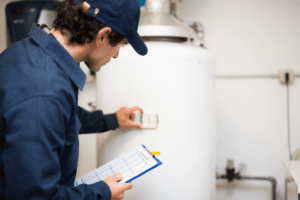
Schedule showers
You're probably all too familiar with the morning rush to get out of the door on time. If you have several people in your household, that means multiple showers being taken within one hour each morning. To avoid cold showers, figure out a schedule that works for everyone's needs and stick to it. You can take turns weekly or daily being the one designated to shower earlier. Not only will this save everyone from an unpleasant experience, but it'll help everyone stay on schedule.
Use eco-mode on appliances
To save water, most dishwashers have an eco-mode that's more efficient. The machine has technology with sprayers on the upper and lower racks that use a pre-soaking softening of food before applying soap for the wash. If you'll have several appliances or showers running at once, be sure to place your dishwasher on eco mode so you don't run out of hot water.
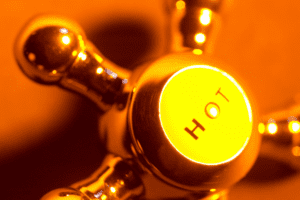
Use cold water in your washing machine
Washing your clothes in cold water can save money and energy, but you might not know that some types of clothing are actually better off being washed in cold water. Check the care labels on your garments for washing instructions, and if it doesn't specifically recommend warm or hot water, give cold water a try. There have been huge advancements in detergent formulas over the years too- many of them now work just as well (if not better) in cold water as they do in hot.
Upgrade to a more efficient unit
Over time, older appliances become less efficient. To see if your hot water heater needs to be replaced, check the sticker on the tank. If it's nearing the end of its life, you may need to prevent running out of hot water by replacing the unit. By doing this, you'll actually save money in the long run from having an energy-efficient household appliance.
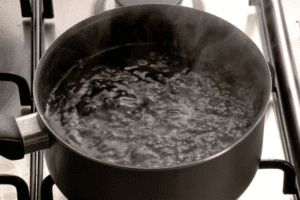
Upgrade to a larger unit
Before you choose a new hot water unit, decide how large you want it to be by estimating your family's "peak hour" demand. To do this, think about every activity - bathing, shaving, washing dishes and clothes - that would use hot water in one hour. For example, the U.S Department of Energy says the average person uses 10 gallons of water for one shower or two gallons per minute when using the kitchen or bathroom sink faucet. Find a water tank with an FHR that's close to your peak hour demand number. The hot water heater will have its FHR displayed on the Energy Guide label.
Contact Oak Plumbing
If your water heater is causing you grief, it might be time to call a professional. A plumbing expert will take a look at the problem and determine the best course of action so you can stop taking freezing cold showers.
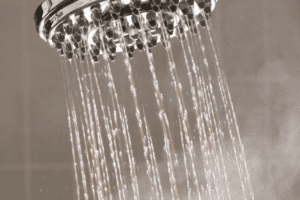
Maintaining your hot water heater
Here are a few tips for maintaining your water heater:
- Know your water heater's lifespan: Like many appliances, water heaters lose efficiency over time. If you know your water heater's lifespan, you can tell when it is having aging issues versus damaged parts or sediment buildup.
- Flush your water heater's tank regularly: As we discussed, flushing your water heater's tank gets rid of sediment buildup that can impair your water heater.
- Periodically check your thermostat: Also as discussed, a faulty or incorrectly-set thermostat can give you problems with hot water. Occasionally checking your thermostat can prevent a lot of headaches.
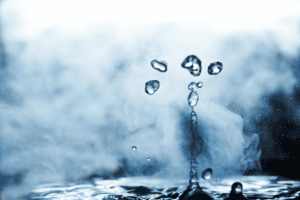
Do you keep running out of hot water? Contact Oak Plumbing today!
We established Oak Plumbing to bring masterful plumbing back into our community. Our highest values are providing sterling customer service and keeping your family safe. That is why we only employ licensed and background-checked experts. Between our professional employees and our commitment to our customers, there's a very good reason why most of our customers give us five-star reviews. Become one of them and come on down to Oak Plumbing now!

